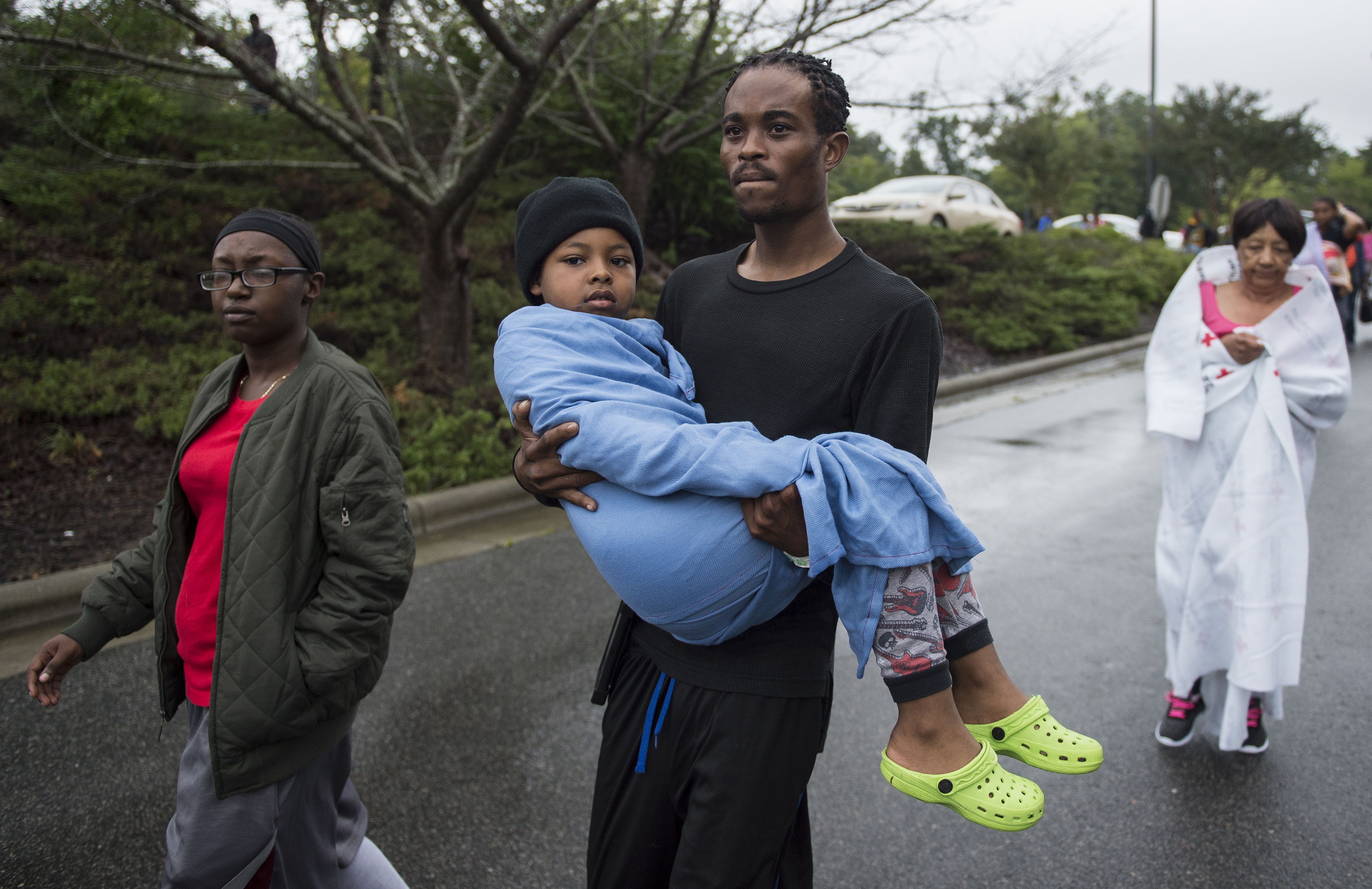Bedraggled, displaced Americans long to return home after hurricane
A man carries his son outside a Red Cross shelter near Raleigh, North Carolina, for people who fled Hurricane Florence (Andrew CABALLERO-REYNOLDS)
Raleigh (United States) (AFP) – In a makeshift shelter on the campus of North Carolina State University, hundreds of people who fled Hurricane Florence dream of going home, but have little idea about when that will happen, or if their homes survived the deluge.
“Everybody wants to go home,” said Dianna van Horne, a Red Cross worker helping some of the hundreds of thousands of Americans driven to this shelter near the state capital Raleigh by the torrential rains and storm surge that devastated the coast.
Four-month-old Genesis, sleeping peacefully in the arms of her mother Rashaunda Dickens, was oblivious to the 300 or so other people living in cramped conditions here.
Dickens left her home in the seaside town of Morehead City on Tuesday with her four children, just one step ahead of the storm.
“The house that we were living in, the water came up to second floor, so we lost everything,” she said. “The kids are scared. They don’t really understand what’s going on.”
Her eldest son Jeremy said he can’t wait to get back to school and his normal life. “It’s so loud in the room, everybody is snoring when I’m trying to sleep. And the beds are hard.”
Thomas Hammett has two tears tattooed by the corner of his left eye, which had probably never expressed better how his feels than right now.
He fled his home in Otway with his two kids, Christopher, aged three, and Jerry, 11.
“We can’t wait to go back home and live a normal life again, hopefully on Wednesday,” Hammett said.
“We had to evacuate, it was too dangerous to stay. Some people have died down there. The neighbors told us our home was fine apart from a few branches down, so that’s a relief at least.”
– ‘We are all equal’ –
The fire alarm in the university’s Friday Institute — more used to academic conventions than huddled refugees — went off in the early hours of the morning, forcing the huddled residents into the rain in their pyjamas, before joining the breakfast line.
Despite their tribulations, most are doing their best to stay positive.
“Everyone has been very nice, very helpful,” said David Owens, a wheelchair-bound pensioner who had been through three other shelters before arriving in Raleigh, after a journey of some 500 miles (800 kilometers).
“There are some very interesting people here to talk to, with stories that will humble you and make your heart cry,” he said.
Van Horne, the Red Cross official, said that despite their yearning to go home, the displaced people “are in a safe place and are making new friends.”
“Black, white, Hispanic people… we all come together here. We got on the same bus, we smell, we sweat, we are all equal,” said Charles Williams, an African American ex-sailor.
“Whether you make $20,000 or 200,000 a year, all the money you have won’t do you any good. All that matters is we’re all safe.”
Disclaimer: This story has not been edited by Siliconeer and is published from a syndicated feed. Siliconeer does not assume any liability for the above story. Validity of the above story is for 7 Days from original date of publishing. Content copyright AFP.


